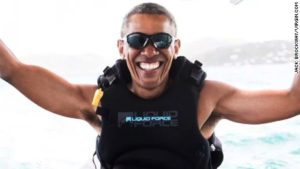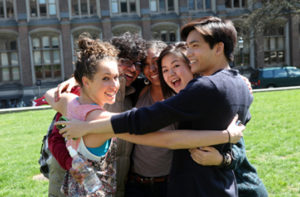Good news — there is a 35 percent chance that the country will descend into open civil war within the next decade.
Now, you may ask, why is that good news?
Well, personally, I thought the odds of a second Battle of Antietam erupting within the year were around 50/50. So a risk of just 35 percent is positively optimistic.
Hey, nearly four out of five Americans “believe the nation is divided on the most important values.” And some experts claim that the nation is really a mash-up of almost a dozen different cultures where people “increasingly sort themselves into like-minded communities.” And, of yeah, in recent years, residents of both Texas and California have sincerely endeavored to secede from the union.
Naturally, we’re all wondering about the root causes of this internecine madness. Well, as is usual when nations start rotting from the inside, the main problem is the age-old malady of bigotry.
Yes, many social scientists have concluded that America is “vulnerable to racism, tribalism, and conflicting visions of the way forward for our nation.” And it certainly doesn’t help that our deranged president “modeled violence as a way to advance politically,” which feeds right into the narrative of the hardcore right wing and fuels talk of armed conflict.
Indeed, ever since the protests at Charlottesville, it should be perfectly clear to even the most idealistic person that “white fear of demographic change is a powerful force” and that “there are several lines of evidence converging on the idea that America is becoming a more hostile place for immigrants and outsiders.”
If you need further proof, “research does find that in the age of Trump — the age that started with an assertion that Mexicans were sending rapists to the US — it’s becoming more acceptable to be outwardly prejudiced.”
It’s all very depressing, of course, and we are correct to wonder how America has so quickly devolved into a nation where racists feel pretty good about themselves, and hatred toward Muslims is shrugged off a conservative value.
Hell, there was a time (not so very long ago) when “psychologists feared that ‘social desirability bias’ — people unwilling to admit they’re prejudiced, for fear of being shamed — would prevent people from answering questions about prejudice truthfully.” But in this terrible new America, “people will readily admit to believing all sorts of vile things. And researchers don’t need to use implicit or subliminal measures to suss it all out.”
This willingness to be horrible only verifies what progressives and ethnic minorities have been saying for years about a large subsection of America.
And yet, many media outlets still indulge in delusional thinking about Trump and his supporters. Despite mountains of anecdotal evidence — and in some cases, actual data-driven research — many commentators still dance around the issues of racism and xenophobia that characterizes Trump’s most ardent fans.
I mean, how many more studies do we need that show fictional “discrimination against whites was a core concern of Trump’s base”? No, it wasn’t a weak correlation or a side issue. It was a “core concern” of Trump’s support.
How often do we have to hear that “changing racial demographics of America contributed to Trump’s success as a presidential candidate among white Americans whose race/ethnicity is central to their identity”?
The truth is that there are millions of Americans who dream of an all-white country, one that is presumably 100 percent straight and Christian as well.
These are people who have never faced governmental or cultural oppression, and “who sat through the unit on the Second World War in their history class and looked at images of concentration camps and gas chambers and burning books and Anne Frank’s attic and still thought, well, hang on, maybe those Nazis had some interesting ideas.”
And they are all for Trump — to the point that he can no wrong and will never lose their support.
Now, in contrast to the bizarre enthusiasm that Trump supporters have of their man’s performance so far, more than half of all Americans and more than two-thirds of Latinos disapprove of the guy.
These are fundamental differences. One might even say that they are irreconcilable.
And since we’re using that kind of language, let’s admit a basic fact — one that may help us avoid open warfare.
We’re 240 years into this marriage, and maybe it’s time to admit that we’re no longer happy in the relationship. We have clearly grown apart. In fact, it’s worth asking if we ever really got along, because after all, there have been more than a few rocky times and bumps in the road over the decades.
Perhaps everyone would be happier if we called it quits and promised to stay in touch — you know, to negotiate intercontinental trade deals and stuff like that. But this whole idea that we are a unified nation and a cohesive culture… well, come on.
Who are we kidding?














